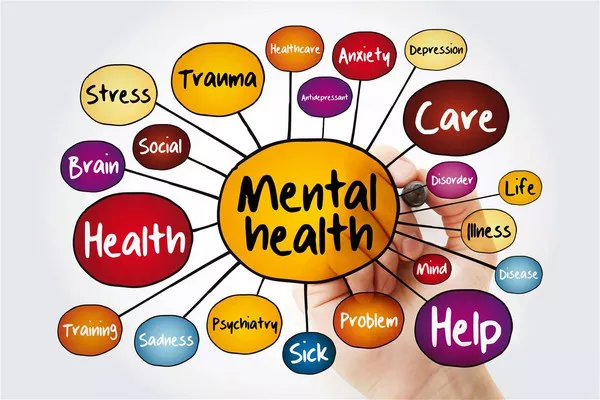Mental health is a critical aspect of our overall well-being. It impacts how we think, feel, and act, and when it becomes disturbed, it can have a profound effect on our daily lives. Whether you’re experiencing stress, anxiety, depression, or any other form of mental disturbance, it’s important to remember that you are not alone, and there are steps you can take to find relief and healing. In this article, we will explore what to do if you are mentally disturbed, offering practical guidance and resources to help you on your journey towards mental well-being.
Understanding Mental Disturbance
Before we delve into what to do when facing mental disturbance, it’s crucial to understand what it means and how it can manifest. Mental disturbance, often referred to as mental illness or mental health issues, encompasses a wide range of conditions that affect a person’s thoughts, emotions, and behaviors. Some common examples include:
Depression: Characterized by persistent feelings of sadness, hopelessness, and a loss of interest in activities that once brought joy.
Anxiety Disorders: These include conditions like generalized anxiety disorder, social anxiety disorder, and panic disorder, which involve excessive worry and fear.
Stress: Occurs when the demands of life exceed an individual’s coping abilities, leading to feelings of overwhelm and tension.
Bipolar Disorder: Involves extreme mood swings, cycling between periods of mania (elevated mood and energy) and depression.
Post-Traumatic Stress Disorder (PTSD): Develops after exposure to a traumatic event and is marked by intrusive memories, flashbacks, and emotional numbness.
Schizophrenia: A severe mental disorder characterized by distorted thinking, hallucinations, and delusions.
Eating Disorders: Such as anorexia nervosa and bulimia nervosa, involve unhealthy relationships with food and body image.
It’s important to recognize that mental disturbance can affect anyone, regardless of age, gender, or background. If you suspect you are experiencing a mental health issue, it’s essential to seek help and support.
What to Do If You Are Mentally Disturbed
Acknowledge Your Feelings: The first step towards healing is acknowledging your feelings and recognizing that it’s okay not to be okay. Mental health challenges are not a sign of weakness, and seeking help is a sign of strength.
Talk to Someone: Sharing your thoughts and emotions with a trusted friend, family member, or therapist can provide tremendous relief. Conversations about your mental health can help you feel understood and less alone.
Seek Professional Help: Mental health professionals, including therapists, psychiatrists, and counselors, are trained to provide guidance and treatment for mental health issues. Don’t hesitate to reach out to them for assessment and support.
Practice Self-Care: Self-care involves taking deliberate steps to care for your physical and emotional well-being. This can include activities like exercise, meditation, mindfulness, and getting adequate sleep.
Set Realistic Goals: When dealing with a mental disturbance, it’s important to set achievable goals. Break larger tasks into smaller, more manageable steps, and celebrate your accomplishments along the way.
Limit Stressors: Identify sources of stress in your life and work on minimizing or eliminating them. This might involve making changes in your routine, setting boundaries, or seeking support in managing stress.
Explore Therapeutic Techniques: Various therapeutic techniques can help alleviate mental health symptoms. Cognitive-behavioral therapy (CBT), mindfulness-based stress reduction (MBSR), and dialectical behavior therapy (DBT) are just a few examples.
Medication When Necessary: In some cases, medication prescribed by a mental health professional can be an effective part of treatment. It’s important to follow your healthcare provider’s guidance and monitor any side effects.
Connect with Support Groups: Joining a support group for individuals with similar mental health challenges can provide a sense of community and understanding. These groups offer a safe space to share experiences and coping strategies.
Practice Patience: Healing from a mental disturbance takes time. Be patient with yourself, and remember that recovery is a journey with ups and downs.
Resources for Help
If you are struggling with mental disturbance, there are numerous resources available to support you:
National Helplines: Many countries have national helplines you can call or text for immediate assistance. These helplines are staffed by trained professionals who can provide guidance and support.
Local Mental Health Services: Look for mental health clinics, hospitals, or community organizations in your area that offer counseling and treatment services.
Online Therapy Platforms: Numerous online therapy platforms provide access to licensed therapists through video or text chat, making mental health support more accessible.
Self-Help Books and Apps: There are many self-help books and mobile apps designed to help individuals manage their mental health and build resilience.
Conclusion
Mental disturbance is a common and treatable condition, and there is no shame in seeking help. Remember that you are not alone on this journey, and there are countless individuals and organizations dedicated to supporting your mental well-being. By acknowledging your feelings, seeking help, and implementing self-care strategies, you can take meaningful steps towards healing and finding peace within yourself. Don’t hesitate to reach out for help, because your mental health matters.


